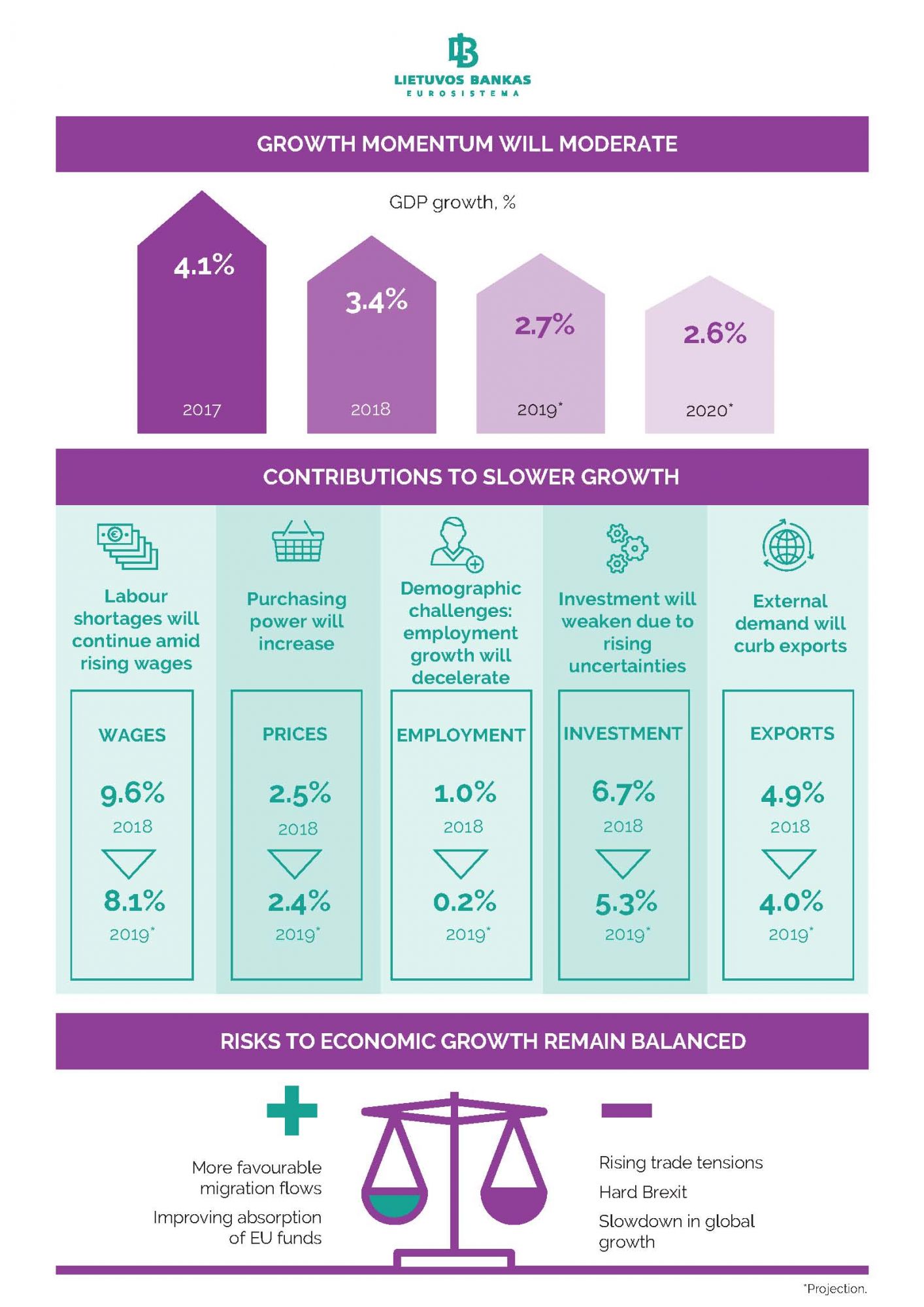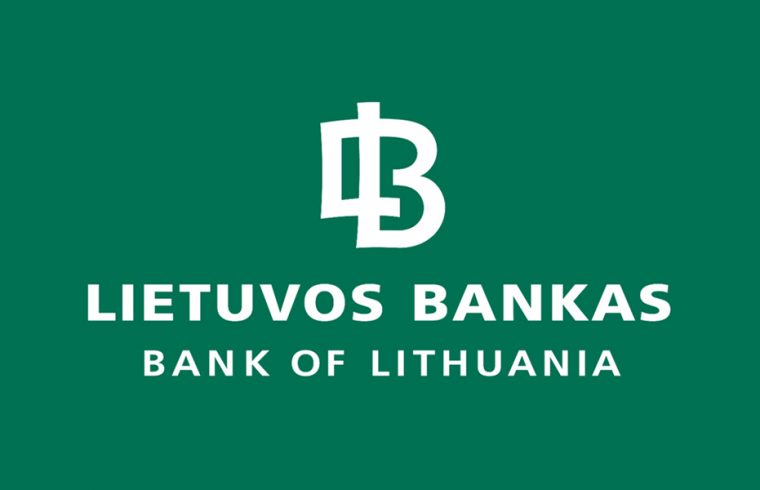Economic expansion in Lithuania is expected to slow amid weakening global growth prospects: according to the latest Bank of Lithuania projections, growth should fall to 2.7% in 2019 from 3.4% in 2018. Nonetheless, household purchasing power will strengthen further as wages continue to noticeably outpace inflation.
“Labour shortages will remain one of the main drivers of wage growth. Employers have been allocating more and more funds to paying wages, a trend that cannot last for a very long time. Thus we expect that this year wages will increase at a slightly slower pace than the year before. Price growth should follow a similar path as last year, which means that household purchasing power will continue to increase,” said Gediminas Šimkus, Director of the Economics and Financial Stability Service of the Bank of Lithuania.
According to him, economic activity in the country is currently above potential, which might create imbalances, especially in the already tightening labour market. In order to ensure sustainable economic expansion and increase its potential, both private and public sectors should aim to attract productivity-inducing investment and invest in more advanced or higher value added technology, while challenges in the domestic labour market should be met head-on, at the same time improving education quality.
In view of the deteriorating outlook and global headwinds, the Bank of Lithuania has downgraded its previous growth projection for 2019 from 2.8% to 2.7%. This mainly reflects rising economic policy and geopolitical uncertainty – in particular related to the unknown outcome of Brexit, trade wars, concerns regarding Italy’s economy, and the economic slowdown in Germany – which weighs on global activity and, in turn, the relatively small and open Lithuania’s economy. The Bank of Lithuania has estimated that in 2019 growth in Lithuanian exports will decrease from 4.9% to 4.0%.
Investment needs in Lithuania remain high as its manufacturing sector has been running at full capacity. This year, however, mounting policy and political uncertainty as well as less buoyant flows of EU funds might curb investment growth.













